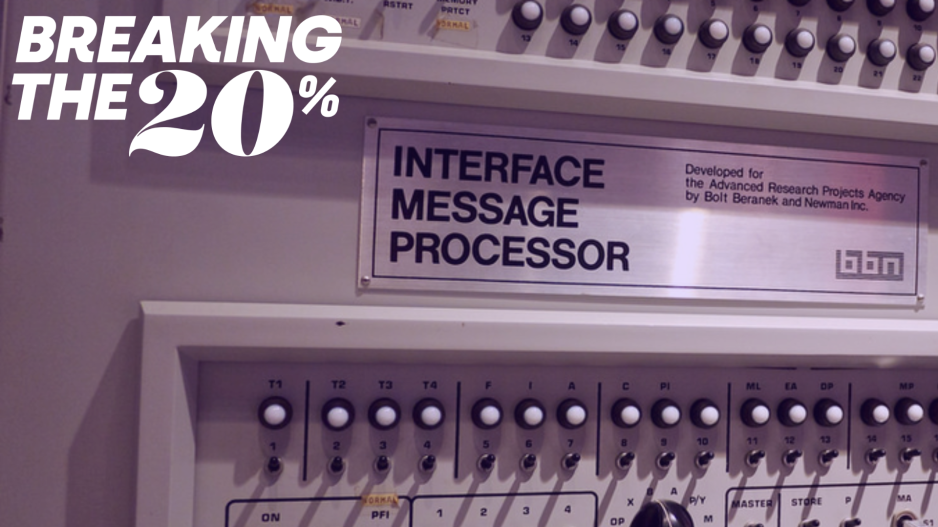Breaking the 20%: From ARPANET to Eternal September
Women’s .com legacy
In the annals of technological history, the contributions of women to the development of the internet often go unrecognized. Yet, their impact is profound and indispensable. This episode of Breaking the 20% delves into the significant roles women played in shaping the internet, from its nascent days with ARPANET to the transformative era of Eternal September.
The journey begins on a historic night in 1969, when the first message was sent from UCLA to Stanford Research Institute over ARPANET. This event marked the birth of what would become today's internet. However, this story isn't just about the technology; it's about the people behind it, particularly the women whose pivotal roles have not received the recognition they deserve.
One of the key figures in this narrative is Elizabeth Feinler, affectionately known as Jake. She managed the Network Information Center at Stanford, where her work was crucial in organizing ARPANET's data and resources. Feinler created the first Resource Handbook—a directory of networked resources essential for ARPANET users. Her team also developed the WHOIS protocol, an indispensable tool for maintaining the directory of domain names and IP addresses that continues to be used today.
Another trailblazer is Radia Perlman, often referred to as the "Mother of the Internet." In the early 1980s, Perlman invented the Spanning Tree Protocol (STP), addressing significant challenges in network architecture by ensuring loop-free operation of network bridges and switches. This protocol is fundamental to the operation of Ethernet networks and laid the groundwork for modern scalable networks. Perlman's approach was not only technical but also poetic; she famously summarized the principles of STP in a whimsical poem that encapsulated the elegance and functionality of her algorithm.
As the internet evolved, the adoption of the TCP/IP protocol suite by ARPANET marked the beginning of a unified global network. This transition paved the way for the vast array of services we use today, from email to the World Wide Web. The narrative of this evolution is enriched with insights and humor, making complex technical achievements more accessible and engaging.
The broader implications of these technological advancements are immense. The internet's transition from a niche tool for researchers and academics to a global phenomenon brought about significant social and economic transformations. The term "Eternal September" refers to the period when internet usage exploded, permanently altering online culture and communication.
Reflecting on these developments, it becomes clear that the internet's growth was fueled by the ingenuity and dedication of many, including the often-overlooked contributions of women. Celebrating these technical achievements not only honors these pioneers but also encourages ongoing conversations about the future of technology, diversity, and the digital divide.
The contributions of women like Elizabeth Feinler and Radia Perlman are foundational to the internet's history. Their stories highlight the importance of recognizing diverse contributions to technological advancements. As we continue to innovate and expand our digital horizons, remembering these pioneers inspires a more inclusive and equitable technological future.






